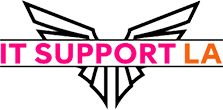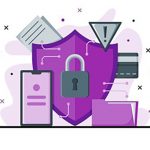
LOS ANGELES LAW FIRMS are presented with a double challenge in the rapidly evolving digital world: confidentiality and competitiveness. Inert software, isolated email infrastructure, and antiquated document management systems pose risk for sharing confidential information, defying compliance requirements, and bringing business to a standstill. For law firms, where trust and discretion are synonymous, it is particularly so. That is why IT Support for a Law Firm in Los Angeles is not an option but a necessity to have an IT and security road map.
Step 1: Review Your Current Systems
The first thing to do in migrating your law firm's IT infrastructure is a proper audit. A proper discovery of all legacy applications containing client data, such as older DMS, email servers, and file share systems, should be conducted. Most firms do not appreciate the threat of legacy applications no longer being patched or supported. A thorough audit exposes vulnerabilities, discovers compliance gaps, and is a good starting point for your migration plan.
Step 2: Plan for a Safe Migration to New Platforms
After analysis, safe migration to new platforms like Microsoft 365 and SharePoint is the second step. Not only do these programs automate business processes, but they also have excellent security features such as multi-factor authentication (MFA), data loss prevention (DLP), and automatic retention policies. Handling sensitive client information is accomplished through careful planning: from pre-migration head start copies and end-user education to rolled-out phases with zero business downtime. An experienced Law firm IT support in Los Angeles guarantees your migration is clean, secure, and compliant to all government regulations.
Step 3: Install Cybersecurity Solutions
With data migrated successfully onto up-to-date platforms, Law firm’s cybersecurity follows. Some of the most important steps include:
- Multi-Factor Authentication (MFA): Provides a login protection security layer, safeguarding accounts even when the password is already in the wrong hands.
- Data Loss Prevention (DLP): Prevents, quietly detects, and remediates the sharing of unauthorized client data.
- Privilege Controls: Provides role-based access, restricting confidential data exposure to authorized individuals only.
- Audit Trails: Monitors all document and file accesses, holding users accountable and enabling auditing for legal compliance.
By integrating these cutting-edge protection measures, your law practice not only protects itself, but expresses proactive protection of client data, setting the trust on which to build.
Step 4: Be Compliant Standards
Law firms are subject to intricate legislation, ranging from state privacy codes to required ethics required by the bar. A successful Law Firm’ IT support in Los Angeles makes your firm compliant while allowing it to operate cost-effectively. For instance, Microsoft 365 retention policies and audit trails enable organizations to automate compliance requirements, lower administrative expenses, and minimize the potential for human mistakes. Legal IT services in Los Angeles and local bar organizations generally offer guidance or co-deploy templates enabling businesses to align their IT plan with regulators' expectations
Step 5: Develop Continuous Monitoring and Support
Technology isn't a setup that's one-and-done, it's a process. Having an IT services firm in Los Angeles enables one to be vigilant at all times, patch on a regular basis, and react quickly to threats. Constant monitoring of system health and security places your law firm one step ahead of impending threats and software patches to match compliance needs. Ongoing vigilance makes IT a strategic ally which allows your lawyers to do what they do best: advise clients.
Step 6: Leverage Collaboration & Productivity Capabilities
Advanced software tools such as Microsoft 365 and SharePoint secures not only data. They facilitate collaboration. Documented real-time editing, secure file sharing, and built-in communications streamlines in-office procedures, conserving time and improving client satisfaction. For law firms that are multi-practice areas or LA-based satellite offices, the software is seamless collaboration without security loss.
Conclusion
Law firms in Los Angeles must not gamble on legacy IT infrastructure compromising client trust or firm prosperity. By evaluating existing software, phasing into secure systems over time, adopting good cybersecurity practices, and updating compliance controls, your firm can gain efficiency and peace of mind.
Book a 30‑min Legal IT & Cybersecurity Roadmap Session:
FAQs:
Why does your law firm require IT support in Los Angeles?
Law firms deal with sensitive client information where treating with confidentiality while adhering to state and federal laws turns out to be necessary. Advanced IT support safeguards your infrastructure without any disruptions in workflows.
How can old apps compromise your business?
Legacy applications will no longer receive security patches, leaving customer data exposed to cyberattacks. They also usually do not have up-to-date features such as multi-factor authentication (MFA) and audit trails, which are required for legal purposes and data protection.
What is the suggested method of migrating customer data to Microsoft 365 or SharePoint?
Secure migration involves backup of all data, phased deployment in an ordered fashion, imposition of security controls such as MFA and DLP, conducting user training, source with reputable experienced legal IT service providers for assurance of compliance during the process.
What are the key cybersecurity practices for law firms?
Key protection features include Multi-Factor Authentication (MFA), Data Loss Prevention (DLP), role-based privilege restriction, secure file sharing, and audit trails to monitor file access and changes.
How are regular IT support services beneficial to my law firm?
Regular IT support monitors for vulnerabilities, does regular updates, identifies threats in advance, and maintains compliance, so lawyers can work on client service without IT downtime.
Will existing collaboration software enhance the productivity of legal staff?
Yes. Utilization of Microsoft 365 and SharePoint allows for secure real-time document collaboration, versioning, and inter-office communication, which minimizes delay and client satisfaction.
How do I become compliant with local bar associations regarding my IT systems?
Compliance is met with the utilization of secure retention policies, audit trails, and access controls for managing regulatory requirements. Local legal technology vendors or your bar association would be a good source of advice on best practice.


